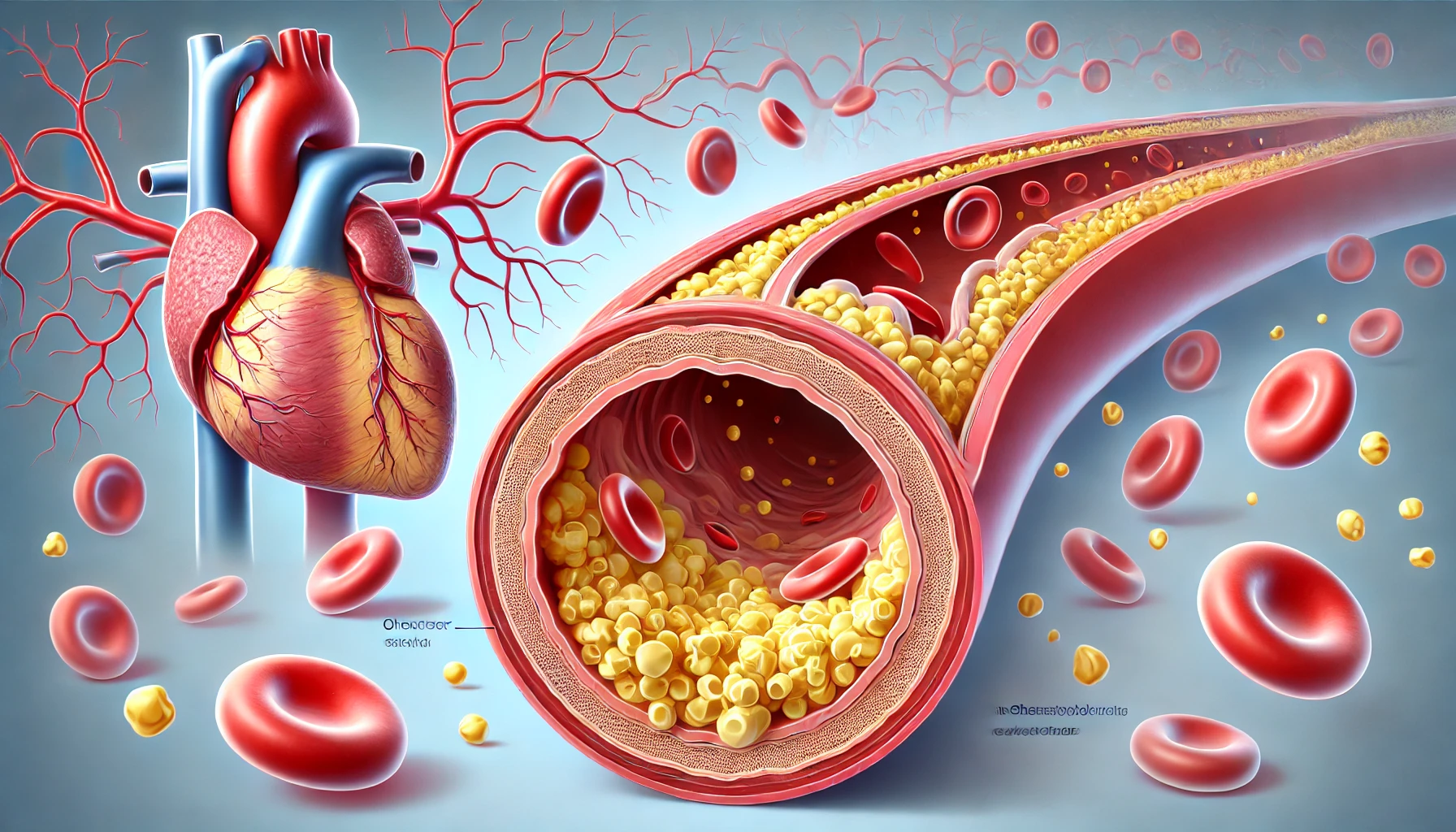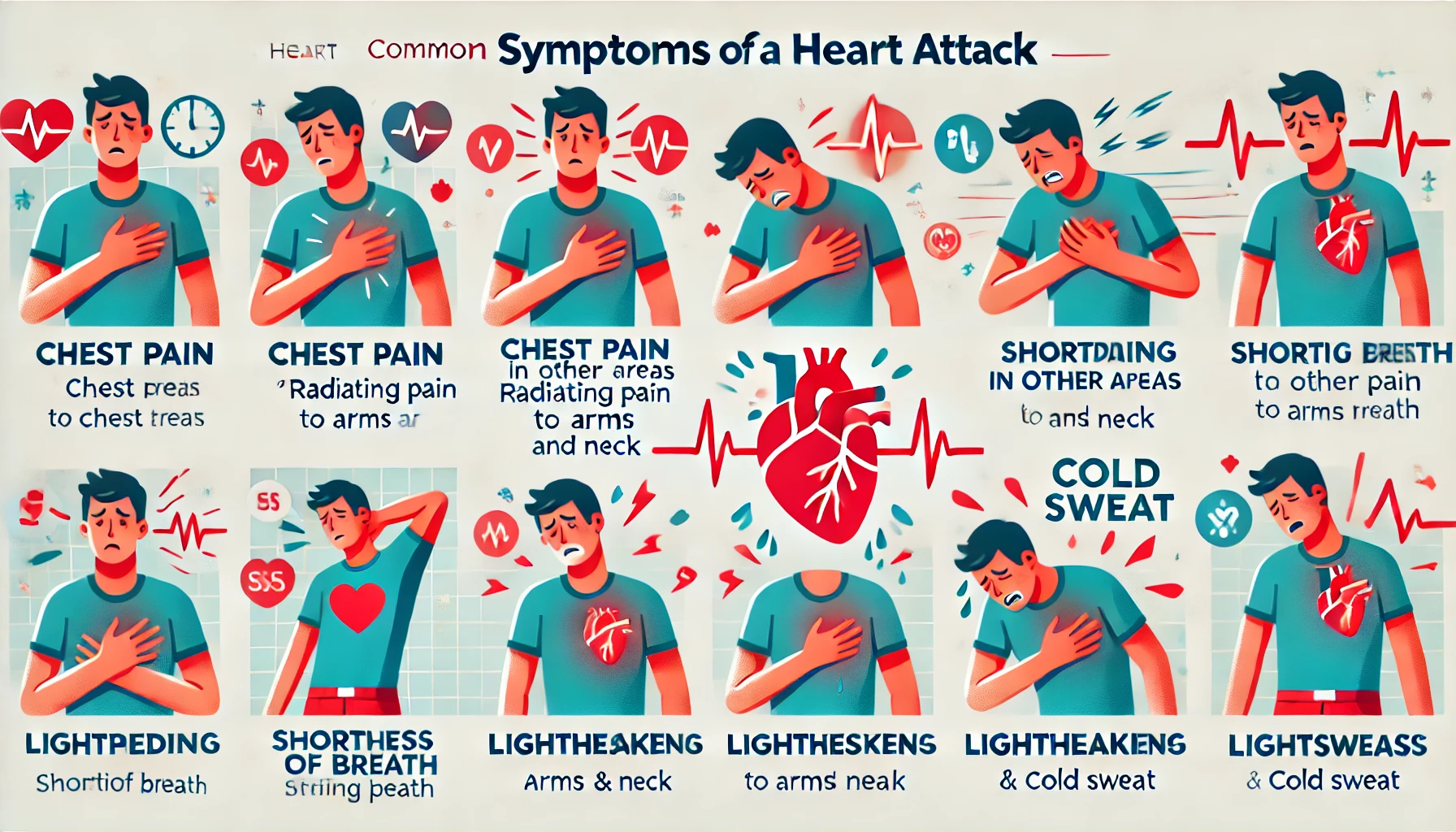
Important Points:
- Common and lesser-known symptoms of a heart attack
- Differences in heart attack symptoms between men and women
- When to seek immediate medical assistance
- Preventive measures to protect heart health
Understanding Heart Attack Symptoms and When to Take Action
What Is a Heart Attack?
A heart attack, or myocardial infarction, occurs when blood flow to the heart muscle is blocked, causing damage to the heart. This blockage is often due to a buildup of fatty deposits (plaque) in the coronary arteries. Recognizing the signs of a heart attack and acting quickly can be lifesaving. Here’s a guide to the most common symptoms, including those that are often overlooked, and what to do if you suspect a heart attack.
Common Symptoms of a Heart Attack
- Chest Pain or Discomfort
- How It Feels: A classic sign of a heart attack is a feeling of pressure, tightness, or pain in the chest, usually in the center or left side. Some describe it as feeling like an elephant sitting on their chest.
- Why It Occurs: This pain occurs because a blockage in the coronary arteries prevents oxygen-rich blood from reaching the heart muscle, causing it to ache.
- Duration: Chest pain from a heart attack typically lasts more than a few minutes or may come and go.
- Pain or Discomfort in Other Areas of the Body
- How It Feels: Heart attack pain isn’t always isolated to the chest. It may radiate to the arms, shoulders, neck, jaw, or back. This can make the pain feel vague and hard to identify as heart-related.
- Why It Occurs: The heart and these areas share nerve pathways, so pain may radiate from the heart to other parts of the body.
- Shortness of Breath
- How It Feels: Difficulty breathing, even when at rest or with minimal activity, is a common symptom of a heart attack. Some people experience this alone without chest pain.
- Why It Occurs: The lack of oxygen-rich blood reaching the heart affects its ability to pump efficiently, leading to shortness of breath.
- Nausea, Indigestion, or Abdominal Pain
- How It Feels: Some individuals, particularly women, may experience nausea, vomiting, or a sensation of indigestion, mistaking it for a digestive issue.
- Why It Occurs: The heart and digestive tract are closely connected through the nervous system, which can cause digestive symptoms during a heart attack.
- Lightheadedness or Dizziness
- How It Feels: Feeling faint, dizzy, or lightheaded can be a sign of a heart attack, especially if accompanied by other symptoms like chest pain or shortness of breath.
- Why It Occurs: Inadequate blood flow to the brain can cause dizziness or a sensation of feeling faint.
- Cold Sweat
- How It Feels: Sudden sweating without a clear reason, especially if the skin feels clammy, can be a symptom of a heart attack.
- Why It Occurs: A heart attack can trigger the body’s fight-or-flight response, leading to sweating as the body reacts to stress.
Heart Attack Symptoms in Women vs. Men
While both men and women can experience chest pain during a heart attack, women are more likely to have atypical symptoms. These may include:
- Unusual Fatigue: Women may feel a sudden, unexplained fatigue or exhaustion days before a heart attack.
- Jaw, Neck, or Back Pain: Women often report feeling pain in the jaw, neck, or upper back, sometimes without chest pain.
- Shortness of Breath, Nausea, or Lightheadedness: Women may experience these symptoms more often than men and may mistake them for other conditions, such as anxiety or acid reflux.
When to Seek Immediate Medical Help
If you suspect you or someone else may be having a heart attack, it’s essential to act quickly. Seek emergency medical help if you experience:
- Persistent chest pain lasting more than a few minutes
- Pain radiating to the arms, shoulders, neck, or jaw
- Sudden shortness of breath, nausea, or lightheadedness
- Severe fatigue or weakness
What to Do While Waiting for Help:
- Call Emergency Services Immediately (e.g., 911 in the U.S.). Every minute counts in getting lifesaving treatment.
- Stay Calm and Rest: Sit down and try to remain calm. Avoid exerting yourself, as this can strain the heart.
- Take Aspirin (If Advised): Chewing a regular-strength aspirin (325 mg) can help prevent further blood clotting, but only take it if you’re not allergic or advised against it by a healthcare provider.
Preventing Heart Attacks: Tips for Heart Health
Heart disease is the leading cause of heart attacks, but lifestyle changes and regular health screenings can reduce your risk significantly.
- Maintain a Heart-Healthy Diet
- A diet rich in fruits, vegetables, whole grains, lean proteins, and healthy fats can improve heart health. Limit saturated fats, trans fats, and added sugars.
- Exercise Regularly
- Regular physical activity strengthens the heart and improves circulation. Aim for at least 150 minutes of moderate exercise, like brisk walking, each week.
- Manage Blood Pressure and Cholesterol
- High blood pressure and cholesterol are significant risk factors for heart disease. Monitor these levels and follow your doctor’s advice on medications, if needed.
- Quit Smoking
- Smoking damages the arteries and raises the risk of a heart attack. Quitting smoking can reduce this risk, even in long-time smokers.
- Control Stress Levels
- Chronic stress can lead to behaviors and conditions that increase heart attack risk. Practice stress-management techniques like meditation, deep breathing, or yoga.
- Limit Alcohol Intake
- Excessive alcohol consumption can raise blood pressure and increase the risk of heart disease. Drink alcohol in moderation, if at all.
- Stay Informed and Get Regular Check-Ups
- Annual check-ups can help monitor risk factors and detect early signs of heart disease. Knowing your cholesterol, blood pressure, and blood sugar levels is essential for proactive heart health.
Conclusion: Recognizing Heart Attack Symptoms Can Save Lives
Heart attacks can have a wide range of symptoms, and recognizing them early is critical for fast treatment and recovery. If you or a loved one experiences symptoms like chest pain, shortness of breath, or unexplained fatigue, don’t hesitate to seek emergency help. Taking preventive steps, including a heart-healthy lifestyle and regular check-ups, can further protect you from heart attacks. Remember, when it comes to heart health, every minute matters.

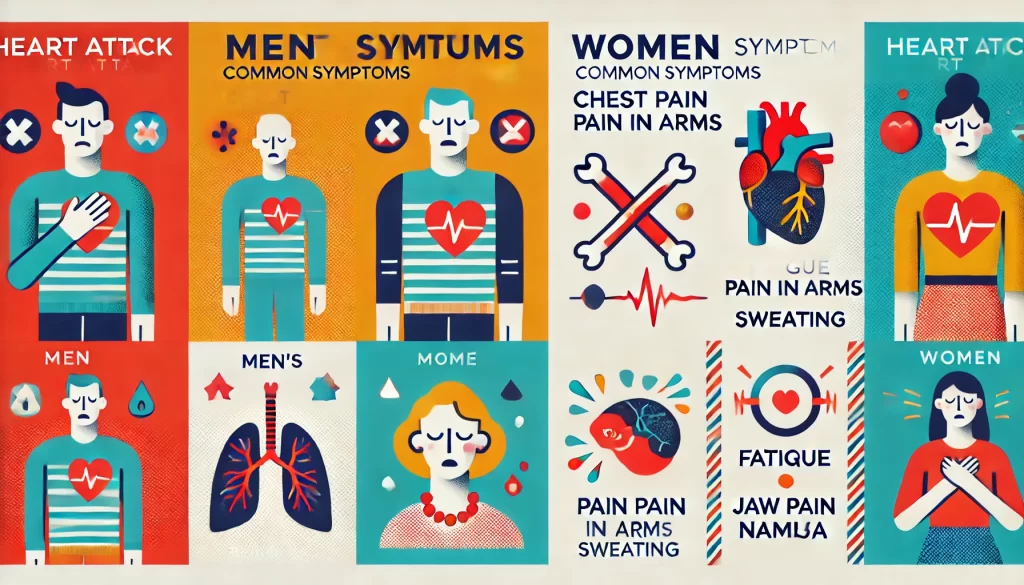
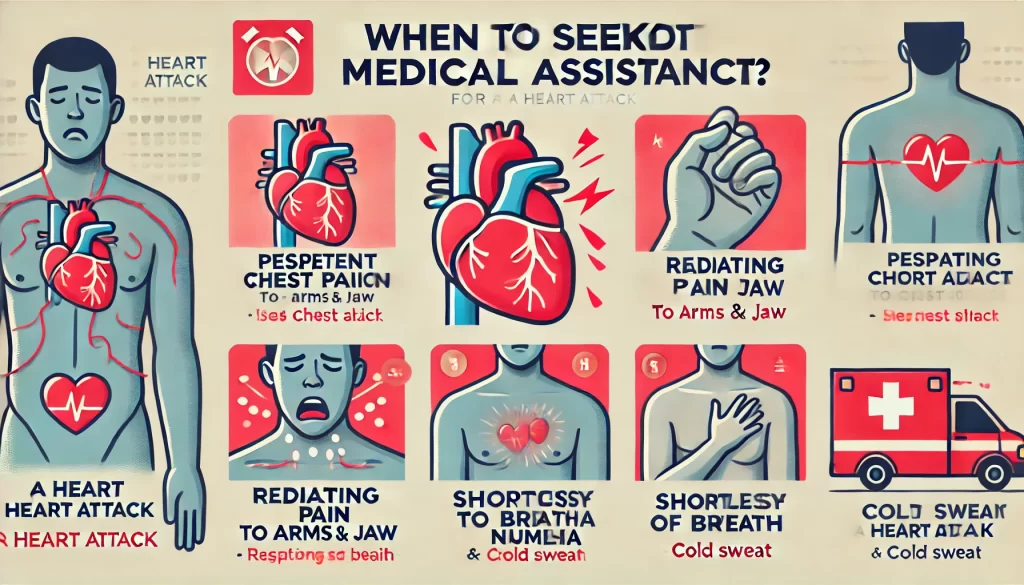
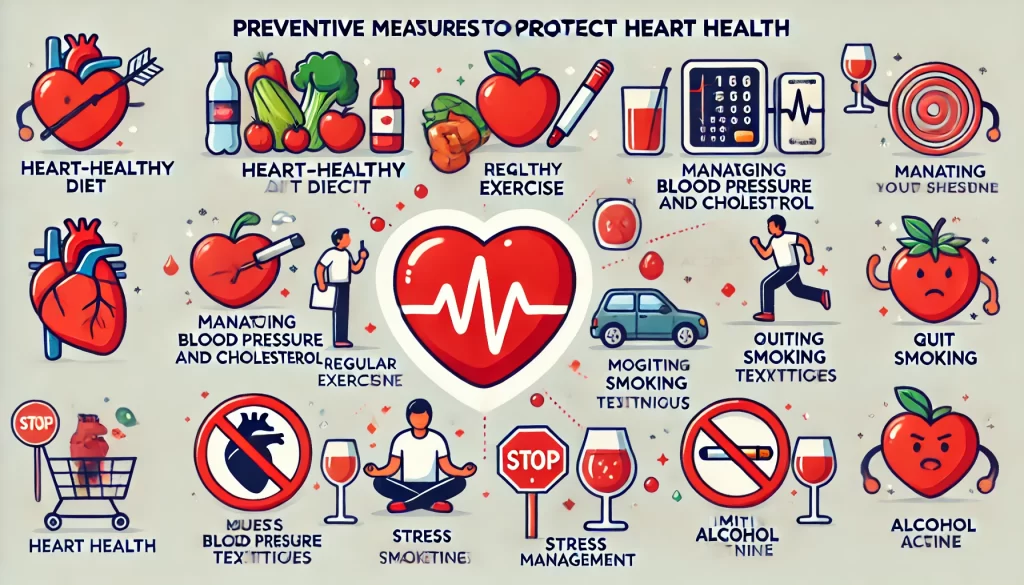
 Next Post
Next Post
